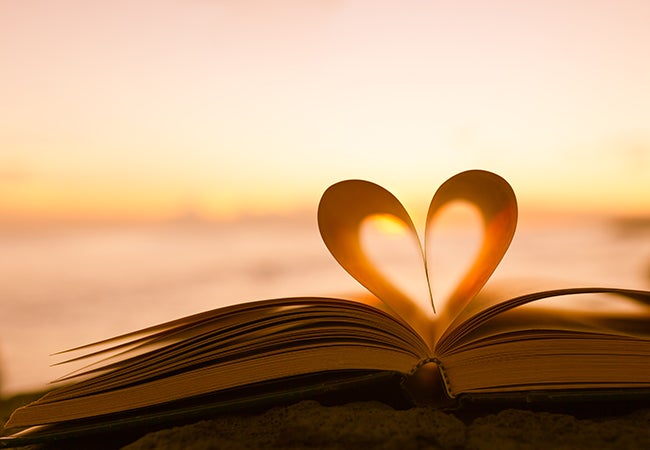The Aspen Institute is a place of ideas. And what better place to find those ideas than in the pages of a good book? In December, our policy directors are sharing the books which had the largest impact on them in 2016. Read their recommendations below.

Amy Garmer, director of the Aspen Institute Dialogue on Public Libraries:
The Train to Crystal City: FDR’s Secret Prisoner Exchange Program and America’s Only Family Internment Camp During World War II, by Jan Jarboe Russell
With exquisite tenderness, Jan Jarboe Russell tells the stories of Ingrid Eiserloh and Sumi Utsushigawa, two teenage girls born in the United States to immigrant parents from Germany and Japan, respectively, who are detained for years in a World War II-era family internment camp located in the barren landscape of southern Texas. Russell’s storytelling unfolds from a treasure trove of first-person interviews and research to illuminate a little-known and disturbing US government program that used the freedom of US citizens, legal residents, and even South Americans spirited to the Texas camp as bargaining chips in the broader conduct of the global war.The Train to Crystal City is both an incredibly moving tribute to the perseverance of the human spirit and a cautionary tale about the moral blindness that can befall a fearful nation at war.
The Wright Brothers, by David McCullough
Growing up around a clique of private pilots who loved to share their knowledge of flight with a willing audience, I thought that I knew all about the origins of flight —then, along came David McCullough’s 2015 book, The Wright Brothers. I delighted in discovering how much more there was to learn in this wonderfully told story of America’s first family of flight, their dedication to advancing science and knowledge, and their accomplishments on the world stage. With McCullough’s intimate portraits of key players, this is an inspiring story of American innovation at its best.
The Citizen-Soldier: Moral Risk and the Modern Military, by Phil Klay
Phil Klay, winner of the 2014 National Book Award for Fiction for his book Redeployment, follows up his brilliant collection of short stories with this powerful and provocative essay on the nature of American citizenship. Klay’s deeply personal narrative about his decision to join the US Marine Corps provides a riveting frame around an even deeper meditation on the moral risks and communal obligations faced by the men and women who serve in the all-volunteer armed forces, and the evolution of the moral contract that a nation at war owes to its citizen-soldiers. At just 29 pages, this is a beautifully written piece rich with historical, philosophical, and personal insights that lingers on the mind and conscience long after the last word is read.
Eric Liu, director of the Citizenship and American Identity Program:
Beloved, by Toni Morrison
I’m embarrassed to admit that I had not read this classic novel until this year (when my daughter, a high school senior, had to read it for class). It is not just a hypnotic and profoundly moving story about the psychic and physical cost of slavery and the deep resilience of the enslaved. It is also a meditation on what the main character, Sethe, calls “rememory”: what we remember as individuals, what we tell ourselves as a community about our past, and the ways that memory both forms and deforms our social and civic imagination. Even though the presidential election was a win for a backward-looking vision of American identity, a new America is being birthed all around us. The sooner we learn to reckon with it in a grown-up way, the better. This novel helped me do that.
Freedom From Fear, by David Kennedy
This doorstop of a book is a definitive social and political history of the United States during the Depression and World War II. It’s at once bracing, reassuring, and terrifying to sense the echoes of that period in our own time: the loss of faith in democracy, the rise of populists and fascists and racist nationalists, and the contagious loss of confidence in an integrated global future. What we had then was FDR. What we have now is … less than FDR. But we also have a populace today that has far more material security, health, and education than the Americans of the 1930s had. Will that be enough for us in this new period of darkness? That’s for us to determine – but reading great, textured history like this will help us move forward wisely.
Dan Glickman, director of the Aspen Institute Congressional Program:
A Dog’s Purpose, by W. Bruce Cameron
A great, insightful, and funny book looking at how a dog views human beings. Anybody who loves dogs will see the humor and humanity in this story.
A Journey, My Political Life, by Tony Blair
I have always found him a fascinating person, somewhat in the model of Bill Clinton, looking to move his political party back to the center. A good primer on British politics of the 1980s and 1990s. And Blair came to my house in Kansas in the early 1990’s on a parliamentary exchange program.
Hillbilly Elegy by J.D. Vance
A great drilling-down into a community of working-class whites who have lost their jobs, and a discussion of why they feel hopeless and disenfranchised from the rest of the country and the traditional Democratic Party. The book in many ways parallels What’s the Matter with Kansas, written several years ago by Thomas Frank.


